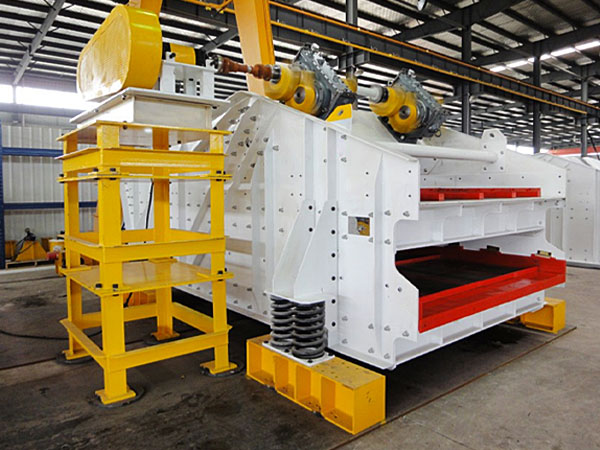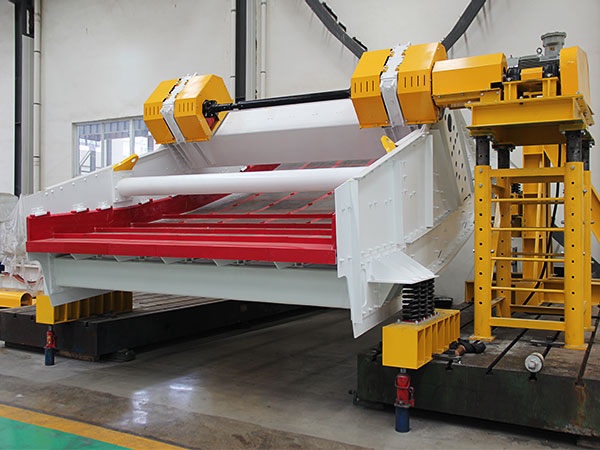A single deck horizontal screen refers to a specific type of screening equipment used in various industries, including mining, construction, and aggregate processing. It is designed to separate particles or materials based on their size, ensuring efficient and accurate classification.
Here are the key features and characteristics of a single deck horizontal screen:

Single Deck: This means the screen has only one level or layer of screening surface. It consists of a single mesh or perforated plate where the material is fed for separation.
Horizontal Orientation: The screen is positioned horizontally, typically mounted on a support structure or frame. The horizontal orientation allows for the material to move along the screen surface with a forward motion.
Screening Surface: The screening surface of the screen deck is made of a series of panels, meshes, or perforated plates with specific openings or apertures. These openings determine the size of particles that can pass through or be retained on the screen.

Vibrating Mechanism: Single deck horizontal screens often incorporate a vibrating mechanism, such as an electric motor with eccentric weights or a mechanical exciter. This vibration helps to convey the material along the screen surface and enhances the separation process.
Particle Separation: As the material is fed onto the screen, it is subjected to the vibration and movement of the screen deck. Smaller particles that can pass through the openings in the screen surface are separated and classified as undersize, while larger particles are retained and classified as oversize.
Size Range: Single deck horizontal screens are available in various sizes, with different screening capacities and mesh/opening sizes. The selection of screen size depends on the application and desired particle size distribution.
…
For more detailed information about the characteristics of the single deck horizontal screen, click to visit: https://www.hsd-industry.com/news/characteristics-of-single-deck-horizontal-screen/


